Gold Award Girl Scouts
2024-25



2024-25


Gold Award Girl Scouts are change-makers. They have changed the world, changed their lives, and earned the most prestigious award in Girl Scouting.
To earn the Gold Award, a Girl Scout identifies an issue in their community, drafts a plan to address a root cause, and leads a team of volunteers to implement it. When the project is complete, the Gold Award Girl Scout and their team have made a sustainable impact on the world that continues to last beyond their involvement.
It’s a huge accomplishment that also impacts the Gold Award Girl Scout as a person. How they see the world—and how the world sees them—is forever changed. It’s also a credential that will be with them for the rest of their life; having the Girl Scout Gold Award on a high school transcript or resumé can make a Girl Scout stand out when it comes to college admissions, scholarship applications, internships, and job interviews.


Girl Scouts bring their dreams to life as they work together to build a better world. Through programs from coast to coast, Girl Scouts of all backgrounds and abilities can be unapologetically themselves as they discover their strengths and rise to meet new challenges—whether they want to climb to the top of a tree or the top of their class, lace up their boots for a hike or advocate for climate justice, or make their first best friends. Backed by trusted adult volunteers, mentors, and millions of alums, Girl Scouts lead the way as they find their voices and make changes that affect the issues most important to them.
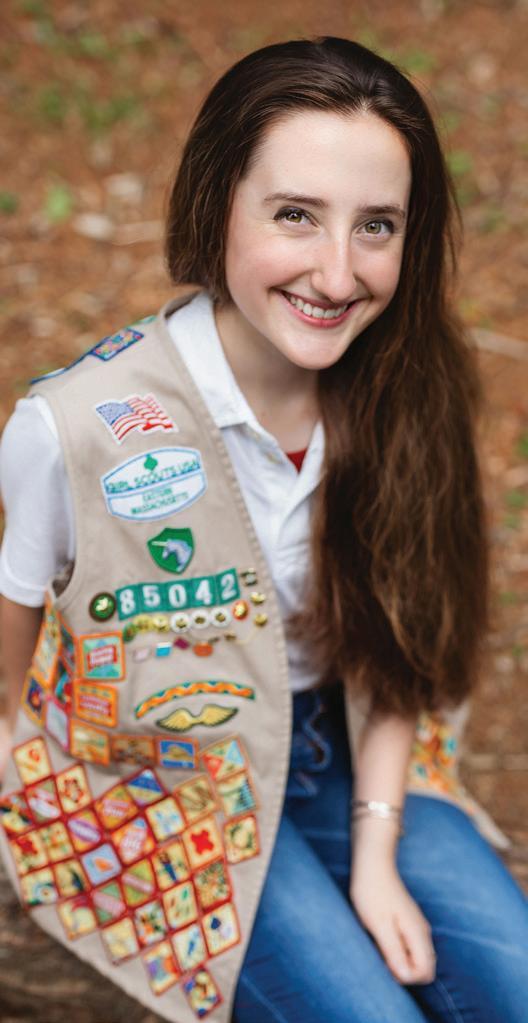
Girl Scouts of Eastern Massachusetts would like to thank the following individuals for their significant commitment of time and talent they’ve devoted to supporting Girl Scouts throughout all stages of their Gold Award projects: reviewing and approving proposals, supporting implementation, and officiating completion.
• Amanda Cheung
• Lucy Costa
• Kelly Del Sorbo
• Mabel Dominguez
• Amy Fong
• Sara Grady
• Carolyn Hely
• Mikayla Hopkins
• Diane Kimball
• Susan Kohlman
• Eileen Koury-Judkins
• Katelyn Frueh Lantz
• Caitlyn LeBlanc
• Cathy LeBlanc
• Courtney Medlin
• Natalie Oakes
• Jessi Robinson
• Suellen Robinson
• Sarina Sherwin
• Raina Searles Sibanda
• Lisa Silletti
• Gail Spring
• Amirthini (Amiya) Subramanian
• Sally Webster
• Judith Wilchynski


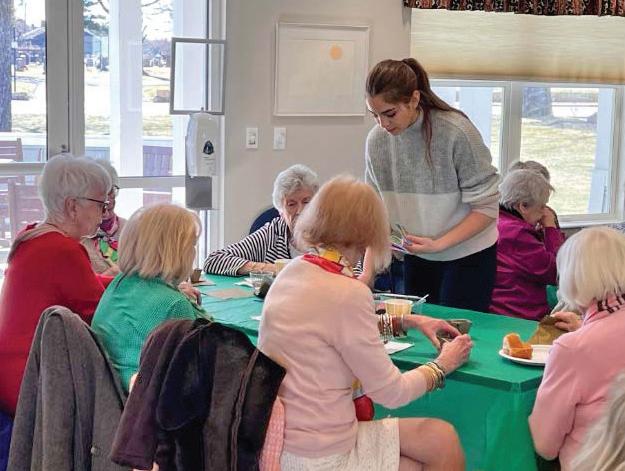



Anna appreciated the benefits of art education, but saw her high school’s fine arts department struggling with student retention. Anna decided to tackle this issue by engaging local elementary schools in the arts and showing them that these activities are enjoyable in the long term. Anna assembled a team of arts-involved high schoolers to serve as role models for the 1,200 elementary school students they presented to. Anna distributed a survey before and after the presentations and calculated a noticeable increase in fine arts interest. Anna’s project will be sustained beyond her involvement by her school district’s Visual and Performing Arts Coordinator, who will continue facilitating recurring presentation events for younger students.
“I learned that my previous hesitation with public speaking has gone away. I used to have to mentally prepare myself before speaking in front of a group due to some anxiety, but I felt completely comfortable presenting to both my peers and the elementary schoolers.”

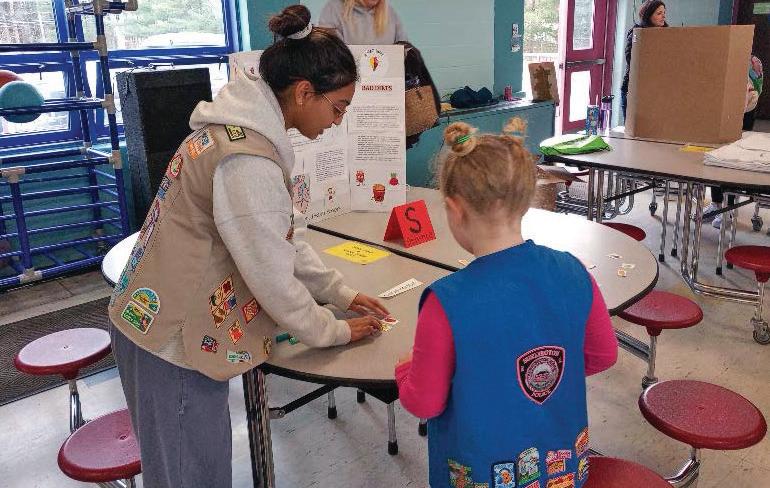

Bianca Tiwari
Bianca recognized that many individuals in disadvantaged communities were at a higher risk of developing deadly cardiovascular disease due to unhealthy lifestyle habits. She believed that with a few simple changes and broader education on the topic, she could help people of marginalized socioeconomic status in Massachusetts and Guyana (her country of origin) develop better heart-health practices. To address this issue, Bianca gave presentations at an orphanage in Guyana, a STEAM event for Girl Scouts, and a summer program for young Massachusetts children. Additionally, Bianca developed and distributed “safe-smart” kits of essential firstaid supplies and CPR guidelines. Bianca also created a series of social media posts and short videos to extend her circle of awareness further. Bianca’s efforts will be sustained by her high school’s cardiology club, which assisted during the project and will continue the project’s efforts.
“By creating and developing ‘Be Heart Smart!,’ I had to be very creative, and have a business-oriented mindset in which I had to think about my target demographic, how to reach them, build material to engage them, and actively go out there and spread awareness.”
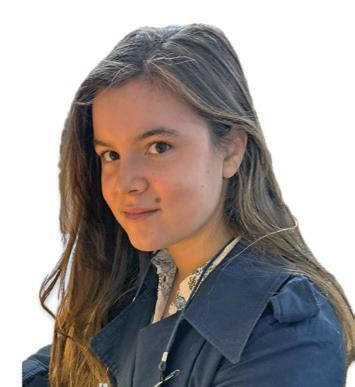
Caroline loves creative writing and noticed that younger students in her community shared her passion. Due to restrictions placed on the Massachusetts public schools’ English curriculum, elementary and middle school students lacked opportunities to develop their creative writing skills. Caroline wanted to fill this gap, so she hosted ten, hour-long writing workshops at her local library. Each session had a different focus, allowing students the time and space to hone their expertise. Caroline’s project will be sustained beyond her involvement by her Gold Award Project Advisor at her local library, who will follow Caroline’s lesson plans for the next set of students.
“I was dedicated throughout the process and kept my goal of improving access to writing education close to my heart. I led my team through all these difficulties and am so proud of myself.”
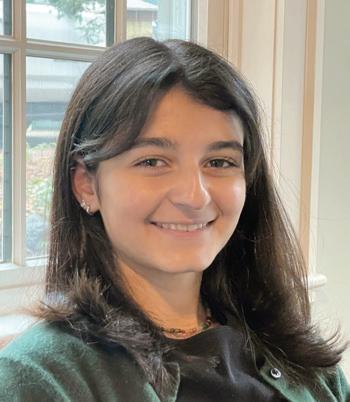
Libby was disappointed to learn that senior citizens in her community felt disconnected from their communities due to evolving technology. Libby connected with a local senior center and began running tech-help classes once a week to help attendees adapt to the world of technology and overcome technological anxieties. Additionally, Libby developed the Senior Outreach Club at her high school to provide tech-free experiences and services to local seniors that promote local connectivity. Libby’s efforts will be sustained beyond her involvement by the Senior Outreach Club, which will continue to provide programs and opportunities to those who need them.
“While it does matter what decisions you end up making, I think that one of the most important parts of leadership is to always keep moving forward. Sometimes making a decision is more important than endlessly considering alternatives, which could eventually result in the failure of the project altogether.”
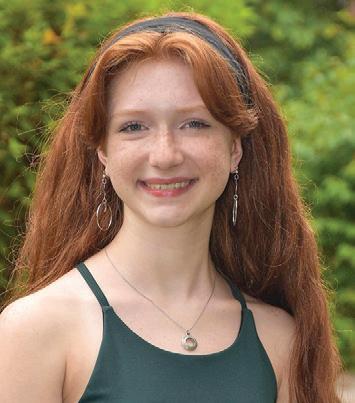
After learning of a tragedy that impacted a family similar to her own, Lillie wanted to create a database to help first responders identify highrisk individuals before entering an emergency situation. Lillie collaborated with her local police and fire departments to create a document that is accessible to both residents and first responders and will help identify people with disabilities in potentially life-threatening situations. By creating a system to identify those who may require additional assistance, Lillie successfully reduced accidental death and injury risk in her town. Lillie’s work will be sustained beyond her involvement through this public document and the current chief of police.
“I learned that with deep thought, eventually comes a positive outcome, and everything will come full circle in the end as long as I put in the work.”
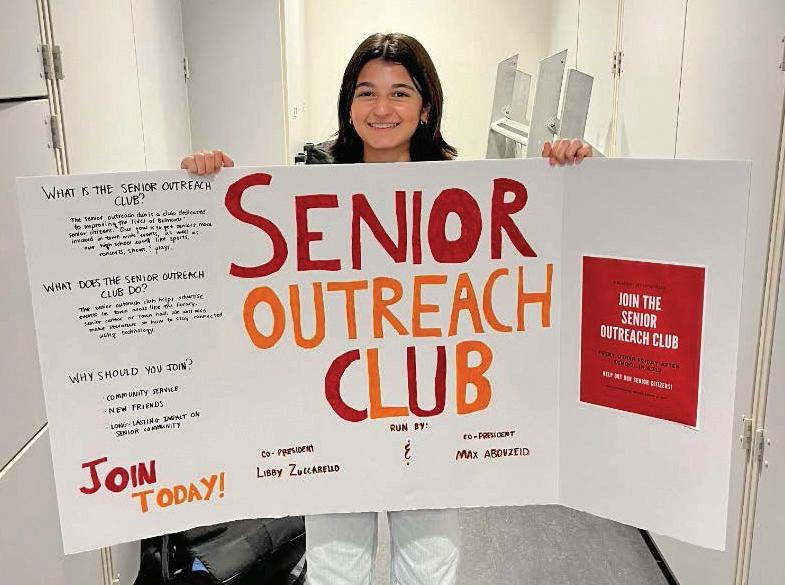

Anya was concerned about her community’s lack of awareness regarding invasive plant species inhabiting several of the town’s wetlands, forest areas, and trail systems. Anya focused on creating concept-in-context educational placards for a small selection of the town’s expansive trail system. The trail signs identified native and invasive plants and were designed with different learning styles, ages, and abilities in mind. Each sign combined easy-to-read text, visual examples, and QR codes with information for both English and Spanish speakers. The success of her signs and resources was tested when she took a group on a guided, educational hike. Anya’s project will be sustained beyond her involvement by the Boxborough Conservation Commission and the Boxborough Conservation Trust, who will keep her signs in good repair.
“I already had many of the technical skills I needed to lead the hike and make the online materials, but I knew nothing about woodworking. I was able to grow my knowledge base and create a functional, lasting product. That’s the most important part of success for me—learning a new skill and making a durable difference at the same time.”
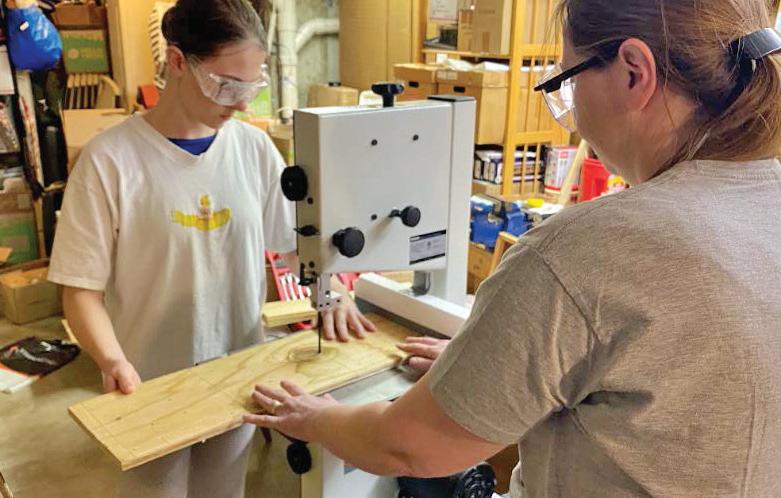

Julia understood that young children present a higher risk of developing low self-esteem as a result of caretakers who speak negatively about themselves. Julia wanted to ensure that children in her community had an uplifting resource available to them when they needed it. To address this issue, Julia authored a self-esteem boosting children’s book! She read the story aloud to different classrooms and donated copies of her book to several school libraries. Julia’s efforts will be sustained beyond her involvement through her book’s messaging and its lasting impact on readers for years to come.
“Even when I faced setbacks, I didn’t give up and found new ways to push forward and make my vision a reality.”
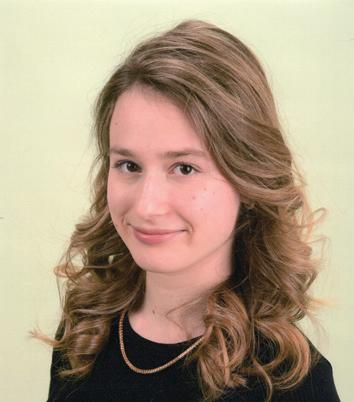
Annelise experienced socioeconomic and educational disparities firsthand when she witnessed wealthier students performing at a higher level than their disadvantaged peers. She identified the wealthier students’ access to up-to-date textbooks, computers, engaging extra-curriculars, and tutors as some of the driving factors that set them apart from lower-income students. Therefore, Annelise created a free, high-quality tutoring and extracurricular enrichment program that supported students of all ages as they sought out further learning opportunities. Additionally, Annelise created an open-source online database filled with robust educational resources that could be easily accessed from a mobile device. Annelise’s project will be sustained beyond her involvement by three of her fellow tutors and the teacher who will continue volunteering as an adult advisor.
“I feel that after this project, I have really grown as an orator, a collaborator, a problem-solver, a researcher, and most of all, a leader.”
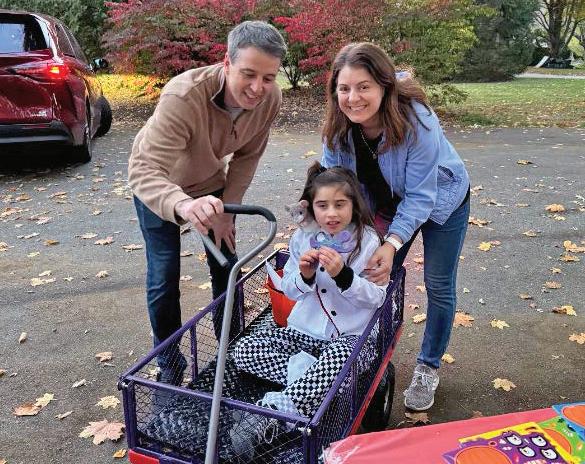

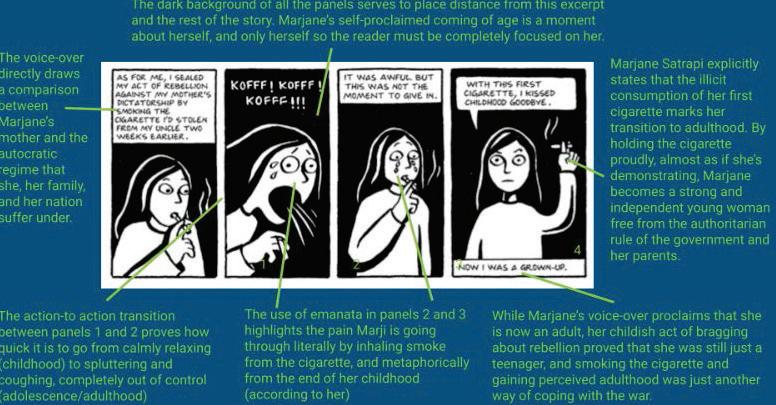
Gross: Learning Lab: A Database of Free, Educator-Approved Resources for Students
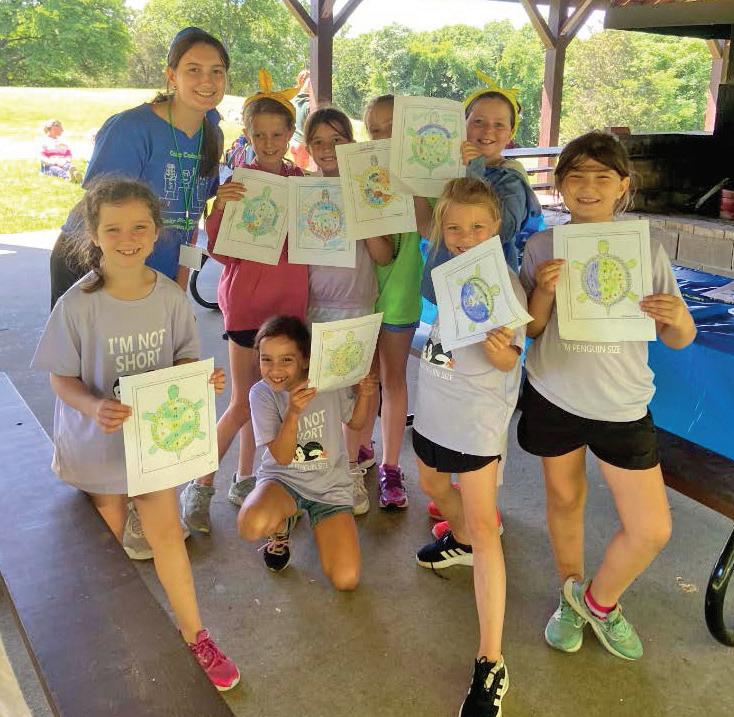
Madison was frustrated to learn that women and girls’ participation in American football was low due to its male-dominated reputation. Madison hosted 21 football clinics for young girls to learn the game and try out each position within it. By creating an open and inclusive environment for girls to try out the sport, Madison’s clinic participants were able to take safe risks and develop mastery of the game. Madison’s project will be sustained beyond her involvement through the school that hosted her clinics, which will use Madison’s insights to develop the program’s next iteration.
“Having the opportunity to teach young girls that it’s okay to go against society and create their own path based off of what makes them happy truly moved me.”
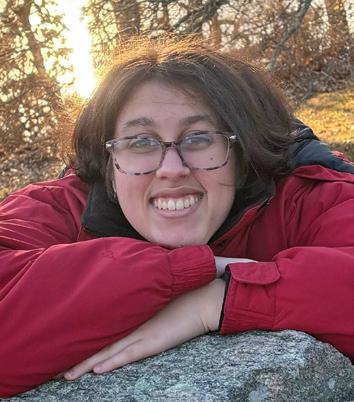
With the rise of AI-generated artwork, Lynn was concerned that young artists in her community would become discouraged when their own creations were less advanced than computergenerated pieces. Lynn addressed this issue by teaching local middle school students how to enhance their current work, interviewing three established artists about their skill evolution, and hosting a gallery of art in different stages of refinement. Lynn’s work will be sustained beyond her involvement through the students she worked with and her artist interviews, which she turned into a book and donated to her school’s library.
“I think a big thing I learned about myself is that I want to be a teacher...I also learned how important it is to stay organized; I don’t think I’ll ever go back to not having a planner.”

Mackenzie Cassler
Mackenzie knew that many of her peers were struggling with high levels of school-related stress and anxiety. Therefore, she started a club at her school with a focus on mindfulness. Mackenzie’s club met biweekly, where she encouraged members to engage in calming activities like mindfulness walks, journaling, group discussions, and meditation. Mackenzie’s project will be sustained by an underclassman who will continue to run the club, along with Mackenzie’s existing club faculty member.
“I learned that I like working on teams and I enjoy problem-solving. Throughout this process, I learned that I like being part of a team that meets to discuss projects and details.”
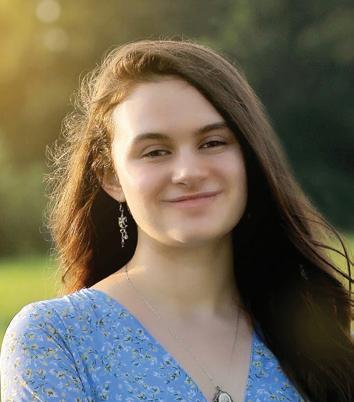
Abigail was inspired by the Massachusetts Department of Environmental Protection’s initiative to significantly reduce the state’s solid waste disposal, particularly by encouraging residents to recycle, donate, and reuse textiles that otherwise would have been disposed of illegally or unethically. Abigail sought to support her state’s efforts by informing members of her community about the initiative. Abigail held presentations and handed out flyers in areas where people were commonly known to dispose of textiles. Additionally, she arranged for several clothing drives where Abigail spread awareness and collected unneeded items for recycling and donation to those in need. This work will be sustained beyond Abigail’s involvement through her school’s environmental club, which will continue to hold presentations, information booths, and clothing drives.
“I was often told, across the duration of my project, that I was making a difference and that the things I was doing mattered to the people I had spoken to because they knew so little about the things I was talking about before the events I held.”
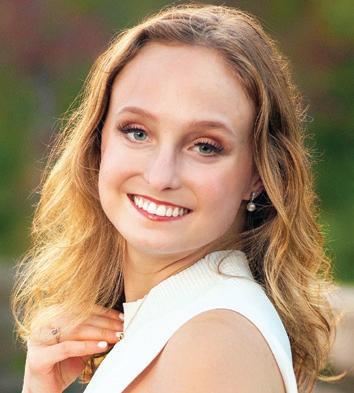
Elizabeth Hagy Franklin
Elizabeth was disheartened by high recidivism and low education rates in those who are or have been incarcerated. She believed that with better access to supplementary resources and positive mental stimulation, those recently released or soon-to-be-released would have a better chance at reintegrating into society with confidence. Elizabeth achieved her goal of increasing inmates’ educational opportunities by collecting 134 books for donation, arranging a virtual financial literacy class, and creating a database for rehabilitation materials and skillbased lesson plans. Elizabeth’s initiative will be sustained beyond her involvement through her publicly available website, a recording of the financial literacy class, the books in possession of the facilities’ resident life and education departments, and through inmates whose lives have been positively impacted by her work.
“I had to engage in a lot of self-reflection and growth to realize my worth, and my determination to see this project through could not be deterred by the attitudes and actions of others.”
Sarah believes that everyone should enjoy theater, yet she understands that some aspects may be challenging for people with disabilities. Sarah created a workbook for theater companies with easy-to-implement strategies to make their performances more accessible for those with visual and hearing impairments, sensory deficits, Autism, and physical considerations. She collaborated with a local K-12 community theater organization, which helped Sarah refine and put her accessibility aids into action. Sarah’s efforts will be sustained beyond her involvement through her robust materials and the theater company with which she partnered.
“I practiced managing and completing a self-led project, which was something new to me. I taught myself how to prioritize things and hold myself accountable for all my work. I learned that I have the ability to make impactful and important changes in my community.”

McKenna wanted to teach her community about sharks as an essential function of our overall ecosystem, and empower participants with safety information to keep them safe in the ocean. McKenna teamed up with her local Shark Center to host a series of workshops for young children and other members of her community. Over the course of two summers, McKenna educated approximately 300 children through the children’s book she wrote, coloring educational postcards, and making necklaces with shark teeth. Additionally, she created informational bookmarks and compiled digital resources to be shared with a wider audience. McKenna’s project will be sustained beyond her involvement through the Atlantic White Shark Conservancy, her local Shark Center, community center, school, and the town library.
“This project helped me build confidence in my abilities to lead, advocate, and make an impact. Seeing the positive outcomes of my efforts reinforced my belief in my capabilities and potential.”
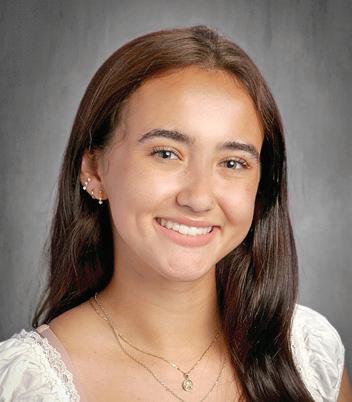
Natalie acknowledged that many women and girls struggle with body image issues, largely due to unrealistic standards set by altered images in popular media. Natalie wanted to spread awareness of the physical and mental repercussions that can result from consuming harmful media, in addition to helping local girls gain self-confidence. To accomplish these goals, Natalie hosted several presentations in her community and created a website with coping strategies and mental health resources. Natalie’s project will be sustained beyond her involvement by the current and future members of her school’s Young Women’s Club, who will be able to revisit her website and access her content.
“This project not only opened my eyes and revealed how passionate I am about this topic, but it also highlighted my desire to create a safe space for those around me and strengthen my desire to refute harmful norms.”
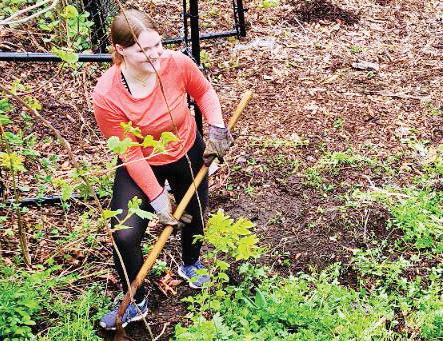
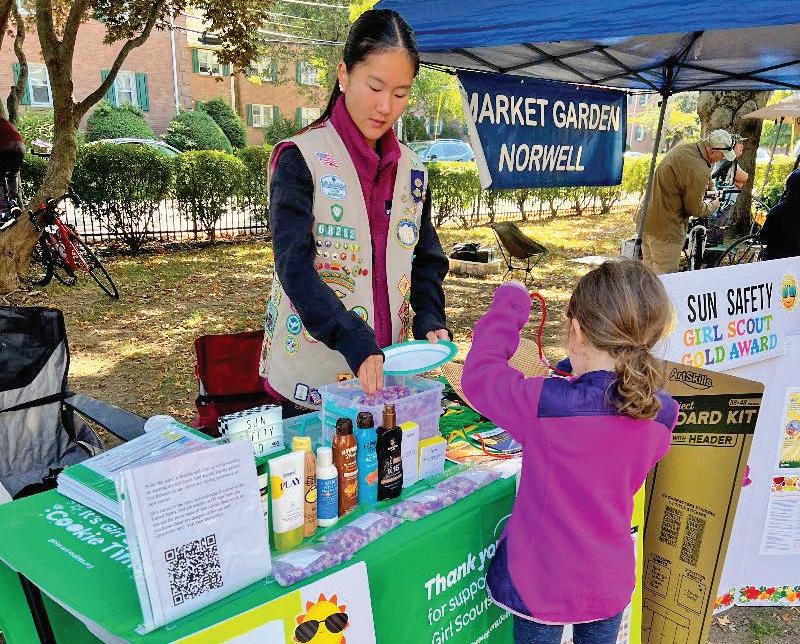
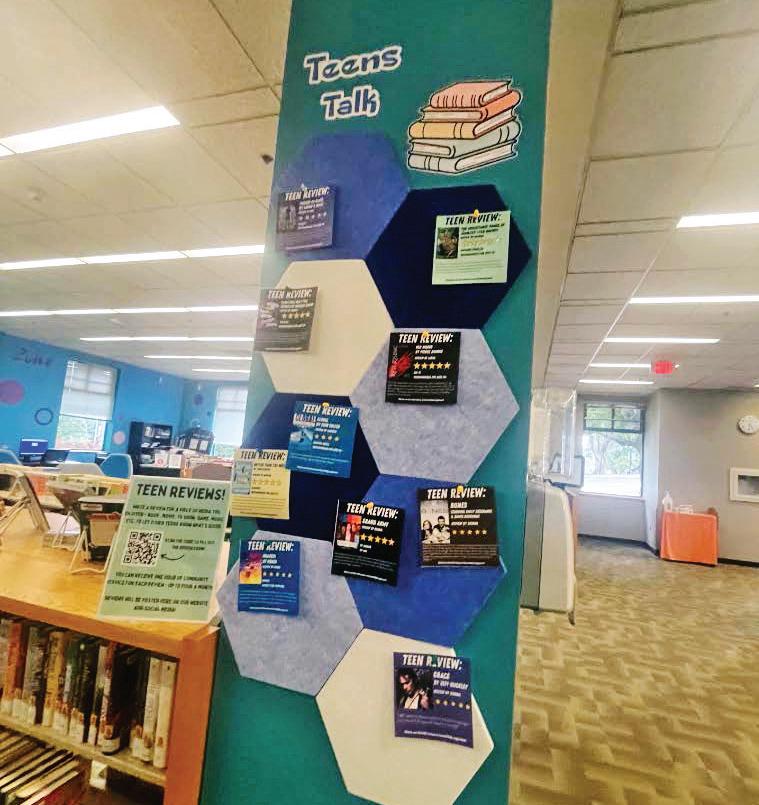

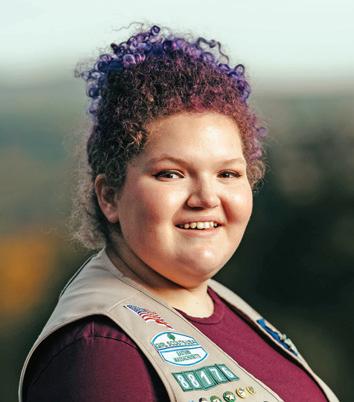
Cecilia is passionate about public libraries and believes in their ability to provide services to patrons of all ages, specifically teenagers. She noticed many of her peers were unaware of or unable to utilize their library’s resources and programs to their full potential. Therefore, Cecilia launched a three-part initiative to drive more teen participation in her town’s library. First, she hosted a library card drive to register local teenagers for library cards. Then, she collaborated with her town’s library to create more engaging programs for teenagers. Finally, she issued two surveys to raise awareness of the library’s offerings. Cecilia’s project will be sustained beyond her involvement by her local library, which will continue to host popular teen events.
“I overcame obstacles I encountered by challenging myself to try new things outside of my comfort zone.”

Sarah noticed that a set of hiking trails in her town had not been properly maintained, lacked signage, was cluttered with unnatural debris, and did not have an official map. Sarah collaborated with several of her town’s municipal systems as she developed and implemented her plans. Sarah successfully marked the trails, cleaned them of litter and other debris, created a trail map, and installed signage that would inform trail users of any potential dangers or extraneous considerations. Additionally, Sarah created a series of trail education and awareness posters that were distributed and displayed in the local middle school. Sarah’s efforts will be sustained beyond her involvement by her town’s Conservation Commission, which is responsible for maintaining all trails in Holliston.
“People will litter, disrupt wildlife, and create their own paths, my project sought to bring awareness to these issues.”

Katie discovered that the world’s bee population has decreased by 90% since the 1960s due to pesticides, climate change, urbanization, varroa mites, and colony collapse disorder. Katie decided to take the matter of increasing the bee population into her own hands by managing her own hive and teaching others in her community how to do the same. Katie hosted in-person workshops, managed an online community of beekeepers, and gave lectures at her local library and education center—all with the goal of encouraging other young beekeepers to start managing their own bee hives. Katie’s project will be sustained beyond her involvement by an experienced beekeeper who will continue Katie’s work of engaging youth in beekeeping using Katie’s hive.
“With resilience, I remembered that you change the world by changing one behavior in one person at a time.”

Abigail was interested in plant medicine but was concerned about the globally declining pollinator population. By creating a pollinator garden featuring herbs that have historically been regarded as medicinal, Abigail was able to combine her two points of interest. Additionally, she incorporated an element of youth education by deciding to build her pollinator garden at a local homestead education center that hosts camps and classes for children. Abigail’s project will be sustained beyond her involvement by younger Girl Scout troops and other local volunteers.
“I learned that I did have leadership skills and confidence deep within me that I didn’t know of previously. This is definitely going to prepare me for the future, in which I will have a lifetime of needing to make personal decisions decisively and without insecurity.”

Meghan knows it is important for children to explore the outdoors, but felt that her community was lacking in spaces for families to enjoy and interact with. Meghan arranged for an Activity Day at her local park and playground, which contributed to her community’s awareness of the space and the improvements Meghan made to it. Meghan built a picnic table, which she encouraged attendees to decorate, and set up large games and kite kits for families to play with for the day. Additionally, Meghan created educational flyers and pamphlets on the importance of outdoor play, which she distributed in advance of as well as during the Activity Day. Meghan’s efforts will be sustained through her picnic table, multiple educational resources, the geocache that she created for the park, and the continuation of an annual Activity Day.
“I think this project has shown me that I can be a good leader and that I can help others positively, even though it’s not something I was comfortable doing before.”
Annabelle was upset about their community’s inadequate knowledge and understanding of important legal protections (or lack thereof) for transgender people. Annabelle wanted to reach a wide audience that included various age groups, so they created an educational comic book, flyers, and an informational website. Additionally, they collected signatures on a petition that signified readers’ understanding and support of social and legal aspects of the transgender rights movement. Annabelle’s project will be sustained beyond their involvement by the Gender-Sexuality Alliance at their high school, which will continue to distribute their comic books to high school students during health class.
“I do prefer to work independently, but I can connect well with those around me through art. Additionally, I learned that I can put my passions into work and get results I am proud of.”

Sarah understood that there was a lot of misinformation being spread in her community surrounding those with learning disabilities. She decided that the best way to disprove these misconceptions would be through early-education intervention. Therefore, Sarah developed a series of three lesson plans, which she delivered to third graders in her school district. The lessons were presented to the same group over the course of several months, and each focused on a different aspect of awareness, education, and acceptance. Sarah’s efforts will be sustained beyond her involvement by her Gold Award Project Advisor, who has committed to carrying out the same lesson plan in future years.
“I discovered that I have made a difference in the students’ lives and changed their mindsets positively.”
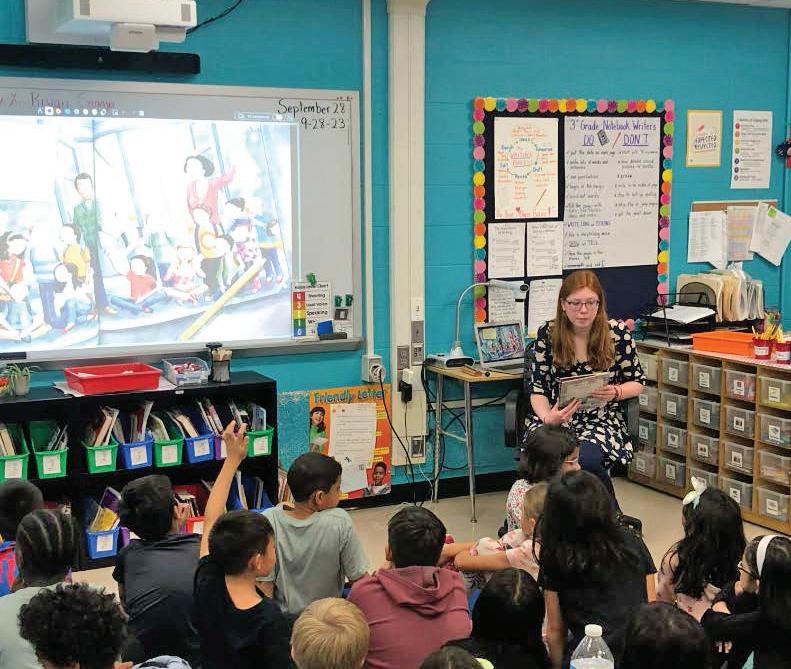

Rory understood the importance of reading to pre-school-aged children and how it helps them develop into strong readers and learners. However, she was discouraged to learn that her local library’s early literacy program was going to be discontinued, which encourages caregivers to read 1,000 books to their children before kindergarten. To increase registration numbers, Rory created a promotional video for the library to share on their website, social media, and in their newsletter. Additionally, she attended in-person story time sessions to spread the word and help register families for the program. To extend the audience beyond existing library patrons, Rory donated book bundles to her local preschool with informational pamphlets about the early literacy program at the library. Rory’s work will be sustained beyond her involvement by the children’s librarian at the local library, the digital promotional resources that Rory created, and the book bundles she distributed to the preschool.
“I learned a lot about myself over the course of this project. I learned I could write proposals, send emails, coordinate with people, and most importantly, I learned that I could accomplish a big project…It was hard to stick through the whole thing, but I am glad that I did and proud of what I have done.”

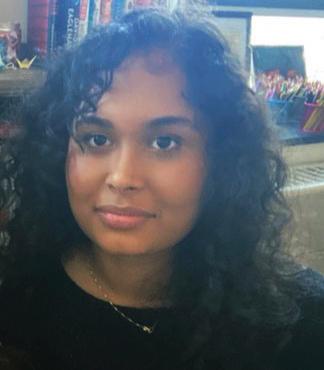
Sudhiti recognized that many non-English speaking United States residents face significant disadvantages, including isolation, discrimination, stereotypes, and financial challenges. Therefore, Sudhiti created a series of 20 free and accessible podcasts that provide pronunciation guides and speaking exercises in accordance with a basic ESL curriculum. Sudhiti also started a club at her school, where she recruited students to study and further develop the curriculum. Sudhiti’s efforts will be sustained beyond her involvement through the club and by the online resources she created.
“I built this amazing community and project, and did something I’m genuinely so proud of. I learned that I’m a person who can make real change on the issues I care about, and that I can do things I thought I couldn’t in order to get there.”

Brooke recognized that the fun Halloween tradition of trick-or-treating wasn’t accessible for children with disabilities in her town. Therefore, Brooke re-envisioned the typical trick-or-treating environment to create a safe and inclusive experience for people of all abilities. Brooke collaborated with her town’s residents to create a trick-or-treating route that was brightly lit, safe to navigate, sensory-friendly, and offered allergy-conscious treats for participants to choose from. To assist them, Brooke also created a step-by-step guide for event organization, including attendee contact info, marketing materials, and treat table set-up guidelines. Brooke’s initiative will be sustained beyond her involvement by her town’s Special Education Parent Advisory Council and by her Gold Award Project Advisor.
“Through this process, I became more aware of my love of connecting with people as I found that lots of my online meetings with organizations went beyond just talking about the event, but established deeper connections.”

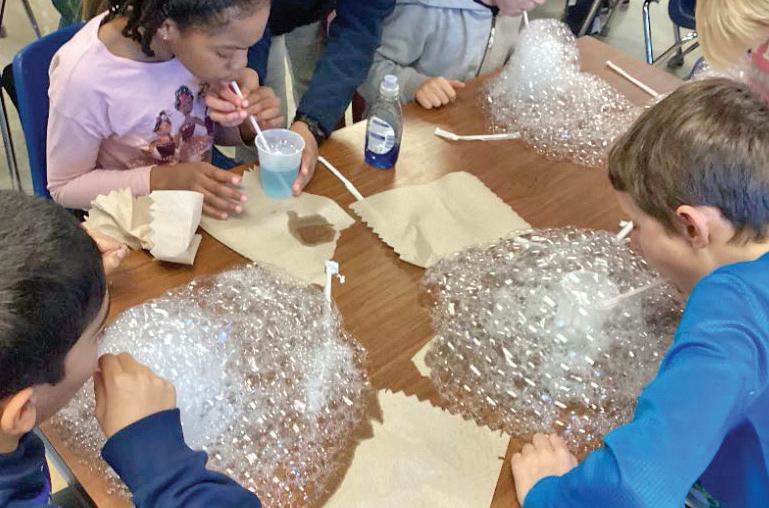
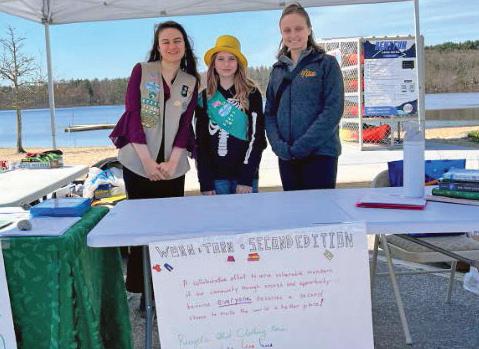
Second Edition: A Chance for a Better Tomorrow Through the Power
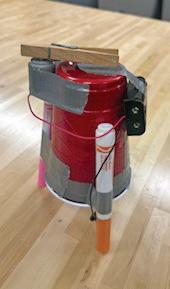
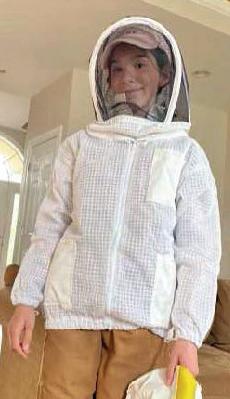

Rebecca saw a decreased participation in her local youth sports programs due to the lasting impacts of the COVID-19 pandemic. Therefore, Rebecca decided to hold a series of youth basketball clinics to encourage young girls to get involved with the sport and increase her local youth league’s enrollment. Through this initiative, Rebecca successfully increased enrollment for the league by 20%. Her Gold Award will be sustained beyond her involvement by local middle school and high school basketball coaches, who will continue to host clinics for young girls interested in playing.
“I learned that I can do big, scary things and that I love working to help kids. I was really nervous about doing my Gold Award because it seemed really challenging and almost impossible. As I started to go through the process step by step, I started to get more excited and had more ideas to include.”
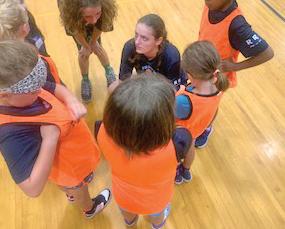

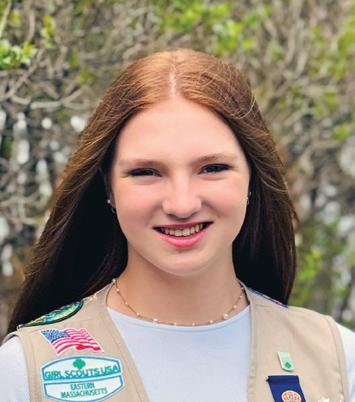
Caitlin was disturbed by the inequitable access to STEM education for students in underserved communities. Moreover, she was concerned about the kinds of inequities this educational gap could create for these children as they grow in today’s society. She identified that many schools in poorly funded areas were struggling to provide STEM education resources. Therefore, Caitlin developed and distributed reusable STEM kits designed to provide hands-on learning experiences for impacted students. Additionally, Caitlin conducted educational workshops where she introduced participants to STEM concepts and demonstrated how to use the STEM kits effectively. Caitlin’s project will be sustained beyond her involvement through her STEM kits, which she made readily available to her community by donating them to her local library. Additionally, she published online resources for those looking to replicate her kits following her involvement.
“I was inspired by the creativity and passion that the children who attended my workshops had, especially when they were problem-solving and collaborating to build marshmallow towers and to make their circuit snowmen light up.”

Faith was disheartened by the overall lack of gender parity in STEM fields, particularly with the underrepresentation of women in these fields. Faith thought the best way to encourage more girls in her community to participate in STEM was through fun, youth-focused STEM activities. She collaborated with a local daycare facility, where she hosted two hands-on sessions for children ages 6 through 10. Faith’s project will be sustained beyond her involvement through the facility where she hosted her sessions, ensuring her goal of introducing more girls to STEM concepts and fields.
“It was not just a great learning experience for the kids, but for me as well because I was able to work on my skills such as problem-solving and team management.”
Elizabeth was alarmed by statistics she found regarding the declining pollinator population in northern Massachusetts. Elizabeth recognized that the population shrinkage was in part due to a lack of food and shelter. Therefore, Elizabeth built a 39-foot-long by 9-foot-wide garden space appropriate for a variety of different essential species. Once planted, Elizabeth informed members of her community about the importance of pollinators by creating educational garden stakes and giving presentations to summer camp attendees. Elizabeth’s project will be sustained beyond her involvement by Mill City Grows and Lincoln Elementary School, who will work together to care for and maintain the garden.
“Through repeating the educational presentation, I gained confidence in my knowledge of pollinators and further improved my public speaking skills.”

Katelyn recognized that members of her community were struggling with hunger, poverty, and food insecurity. Katelyn built a community fridge and pantry, The Friends Fridge, in a centrally located part of her town that was known to be a food desert. The Friends Fridge is solar-powered and is maintained by local community members’ gardens and in-kind donations from grocery stores and other businesses in the area. Additionally, Katelyn collaborated with local artists to make the space more inviting with a vibrant mural. Katelyn’s project will be sustained by the robust network of supporters and collaborators who helped her with her project, which has amassed more than 1,000 members on its Facebook page.
“My project highlighted how small acts of kindness can profoundly impact lives. It served as a model for communities elsewhere, showing how initiatives rooted in compassion and practicality can make a meaningful difference in combating hunger and promoting community solidarity.”
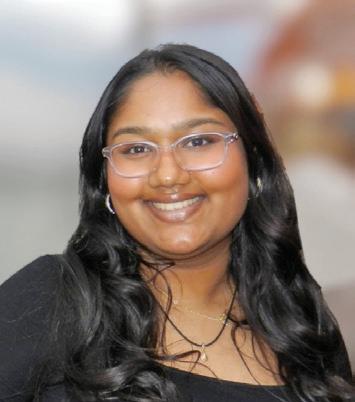
Kriti recognized two issues in her town that could benefit from a singular solution: a community teaching garden. Spending time in the outdoors is critical to the development of life skills in young children, and food insecurity is steadily rising. Kriti’s Community Teaching Garden allowed young residents a space to learn about sustainability, gardening, and healthy eating habits while growing produce to be donated to local food pantries.
“I practiced patience, understanding, and open-mindedness through the planning of the project because the process was a long and hard one. I put confidence and dedication into practice when I was building the actual garden because it takes a lot to be able to fully build and grow a garden, especially in Massachusetts.”
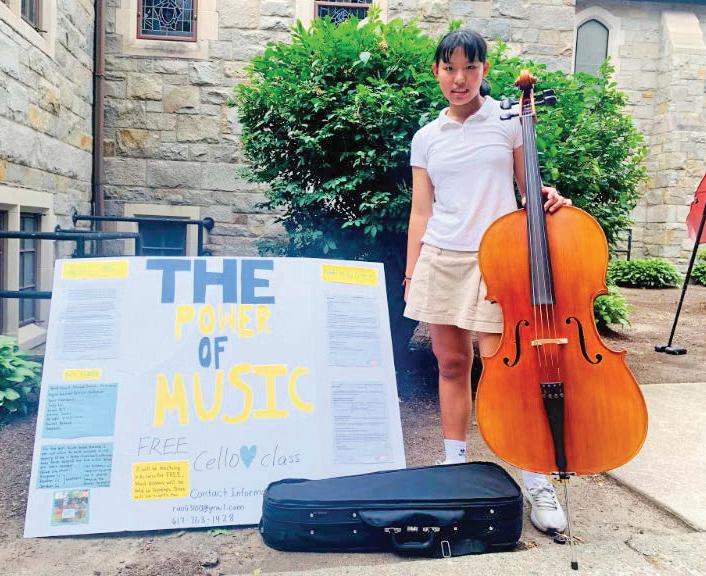
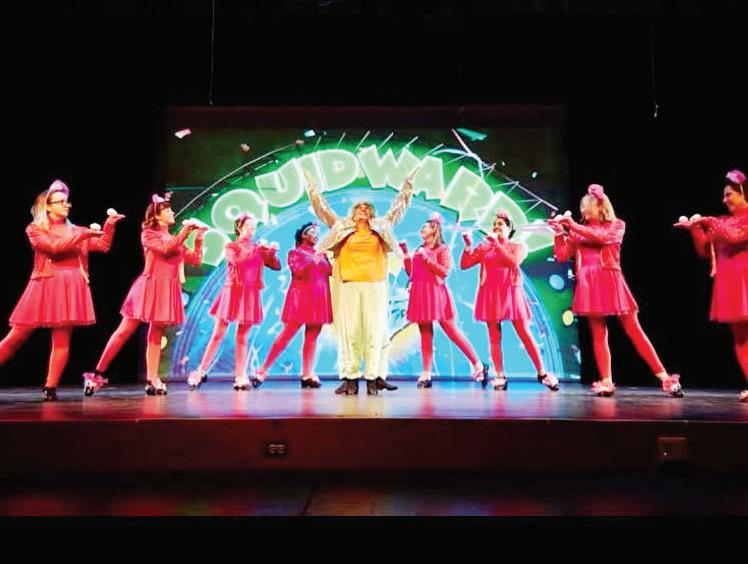



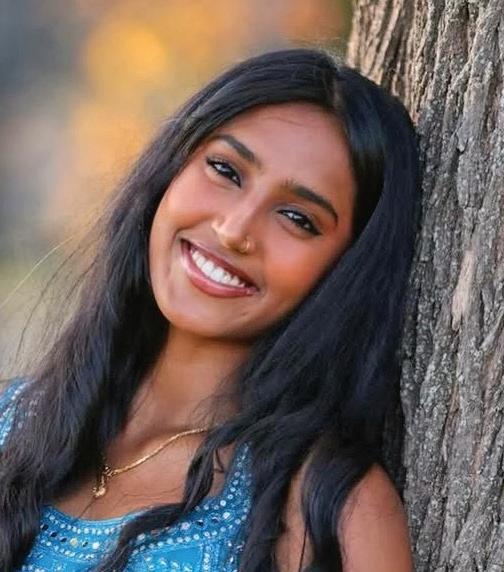
Shrreya learned a disturbing statistic with global implications regarding the shortage of healthcare professionals in the United States and across the globe. While joining the medical field and mental health are common points of discussion among her high school-aged peers, Shrreya thought there was an opportunity to teach younger students about these topics as well. Shrreya developed a two-day after-school program at a local elementary school that sparked students’ interest in the medical field using hands-on activities. Shrreya’s work will be sustained beyond her involvement through her high school’s Medical Club, which will continue to run Shrreya’s program for younger students.
“I had a strong support system, encouraging me to keep searching and not to give up. After talking with Dawn (my Gold Award advisor), I found this passion project, and I am so happy medicine got to be a part of my Gold Award because I want to be a doctor!”
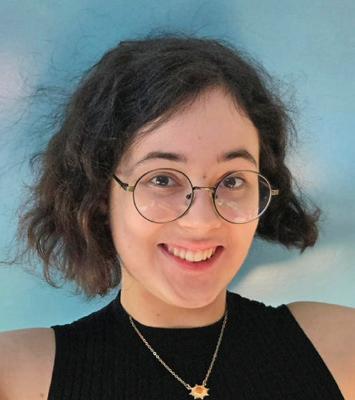
Lucille noticed that too many recyclable materials, such as plastic beverage containers, were being thrown into the trash. Lucille addressed this issue by creating posters, stickers, and bookmarks that educated students about recycling, giving presentations to local elementary schools, and decorating her school’s recycling bins with an eye-catching design. Lucille also connected with members of the Massachusetts Senate and House of Representatives, encouraging them to update the Bottle Bill to enhance statewide recycling efforts. Lucille’s work will be sustained beyond her involvement through her school’s Eco Team, who will ensure posters remain updated and continue to raise awareness among the student body.
“The results were encouraging: there were significantly fewer recyclable items in the trash, and items like cups were more frequently placed in the recycling bin without any liquid remaining.”

Ruo has a passion for music, but recognized that the financial barrier of personalized music education holds some musicians back from realizing their full potential. As an experienced cello player, Ruo used her expertise to provide lessons free of charge to beginner cellists in her community. Ruo taught the basics to many cello players, and achieved her overall goal of getting two students into her town’s free orchestra. Ruo’s efforts will be sustained beyond her involvement by the free orchestra conductor and through the students she taught.
“Teaching music and handling the challenges that come with it taught me the importance of patience and perseverance. I learned that success is often the result of hard work and determination.”

Madelyn learned that skin cancer is the most common form of cancer, with over five million cases diagnosed in the United States each year. Skin cancer is preventable; Madelyn wanted to make sure members of her community knew how to stay protected from the sun. Madelyn decided to create a Sun Safety pamphlet, which she distributed at workshops she held at various local sunny summer hotspots. Madelyn also distributed hundreds of UV-sensitive bracelets at her workshops, which served as reminders for attendees to wear sunscreen on a regular basis. Madelyn’s efforts will be sustained beyond her involvement by her high school’s health teacher, who will continue to distribute Madelyn’s pamphlet and UV bead bracelets.
“I am happy that I was able to present my project to children younger than me, but also to adults. I believe that the importance of sunscreen and the knowledge of UV safety is for everyone.”

Leen was frustrated by the lack of representation for women in computer science. In order to move the needle for equal opportunities in the field, Leen knew that building confidence in computer science for young girls would be critical. Leen created a space for middle school and high school-aged girls to become empowered by computer science through practice with female computer science role models. Participants were able to hone their skills over four weeks with three, two-hour sessions per week where they completed creative mini-projects, participated in live code-alongs, and completed a hackathon project. Leen’s project will be sustained beyond her involvement by her school’s Dean of Students, who will turn her curriculum into a yearly club. Additionally, Leen shared her materials online with her town’s middle and high schools, her local library, her town’s recreation center, and her local mosque.
“I learned more about my potential to grow and learn through helping younger girls in their own journeys and discoveries.”

Anna is passionate about STEM careers and the people in them. She wanted to make sure that those interested in pursuing a career in STEM had ample opportunities to explore STEM careers early on in their educational journey. Anna hosted eight days of after-school programming for local middle schoolers featuring various STEM professionals and educational activities to increase STEM skill proficiencies. Additionally, Anna distributed surveys to gather information on what her attendees learned. Anna’s project will be sustained by her content advisor, who will continue to run her program model by using the lesson plans they developed together.
“I learned that there is a certain satisfaction that comes from seeing my project come to fruition.”

McLane Walpole
Julia learned that virtual or hybrid activities don’t work for everyone, especially individuals with disabilities. Following the COVID-19 pandemic, many recreational programs never fully restarted, leaving a vulnerable population feeling even more isolated. Therefore, Julia created a digital resource where parents, students, and community members could research in-person activities in a quick and easy way. Additionally, she created a presentation that helped community members visualize the different options available to them and passed out business cards that promoted her website. Julia’s project will be sustained beyond her involvement by Best Buddies, an organization dedicated to helping those with disabilities.
“In completing this Gold Award project, I learned and improved my problem-solving skills. I am inspiring to others especially those with disabilities. I participate in different activities and am always willing to try new things.”


SCRIIBE (Students Connecting Remotely in the Interest of Better Expression)


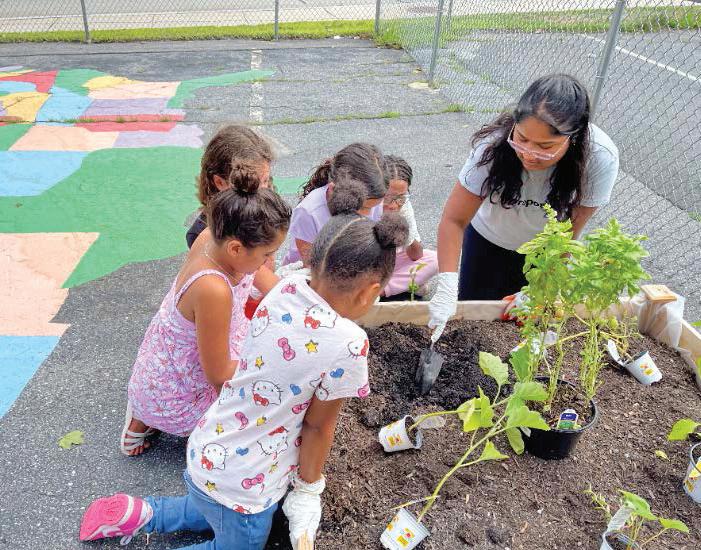

Emma noticed that young people in her community were hesitant to share their cultures and traditions with each other, which caused cultural blindness in her town’s youngest residents. Emma addressed this by creating spaces for kids to express themselves and learn about others. Emma hosted several community craft sessions and game nights, held an educational booth at an existing Multicultural Festival, and gave a presentation to her town’s Human Rights, Diversity, Equity, and Inclusion (DEI) Committee. Emma’s efforts will be sustained by her town’s DEI committee, who will continue to facilitate Emma’s existing workshops and activities for kids to learn about cultural blindness at their annual Multicultural Festival.
“We live in a growing global society. Cultural differences will always be present. Learning to share and embrace cultural differences is helpful to living and working well together.”
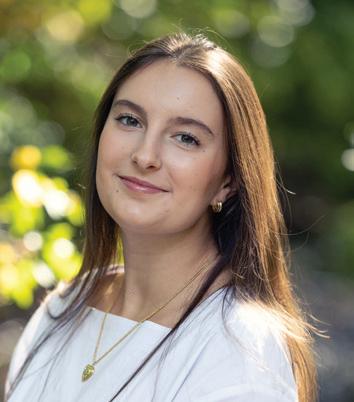
Avery was frustrated by the lack of education surrounding Indigenous history and culture, both in her school’s curriculum and in popular culture. Avery addressed this issue by developing presentations on the stories, experiences, and history of Indigenous people of the Northeast for local elementary and middle schoolers. Additionally, Avery showcased a variety of Indigenous visual art, literature, and architecture in her presentation to promote the visibility of Native Americans’ cultural contributions. Avery’s project will be sustained through a video that she included in her presentation, which globally contextualizes the cultural and linguistic loss that Indigenous people face all around the world.
“I demonstrated leadership through coordinating the various members and organizations involved in my project team and checking on each individual to make sure they felt comfortable and confident with my ideas.”

Tracey Peng
Tracey loves computer science but was discouraged by her peers’ perception of STEM. When Tracey talked about her passion with friends, they were confused because they thought computer science was only for boys. Tracey was frustrated by that stereotype and quickly began research on gender imbalance in STEM fields, and the results were equally disheartening. Tracey participated in public events, hosted coding workshops, created informational flyers, and organized speaker sessions to increase girl participation in computer science activities. Tracey successfully taught basic coding to elementary school students, educated members of her community on key women in computer science history, and increased the girl population of her school’s STEM clubs—including the Girls Who Code club, which will sustain Tracey’s Gold Award beyond her involvement.
“Through my Gold Award project addressing gender inequity in computer science, I demonstrated strong leadership by actively advocating for inclusivity in a field where women are often underrepresented through our engagement in our local community.”
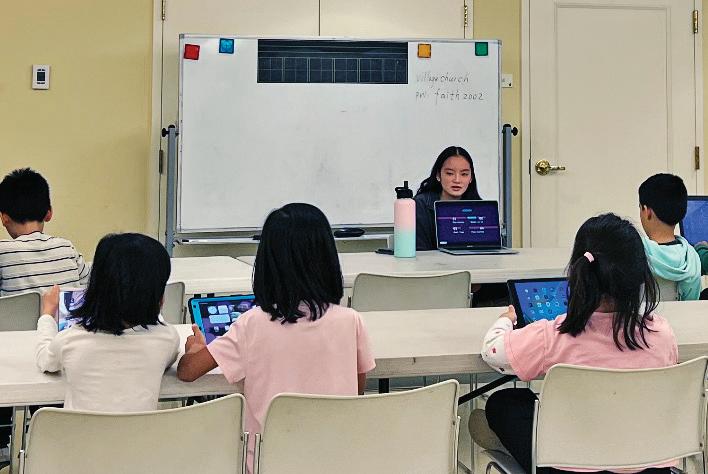

Grace believes that people are more alike than they are different and that effective communication between those with different backgrounds is an essential skill. Therefore, Grace hosted a series of virtual conferences and workshops for young writers across the country called SCRIIBE. Through these meetings, teenagers from different regions could build meaningful relationships through each other’s writing despite geographic barriers. Grace’s efforts will be sustained by another member of SCRIIBE, who will take over the bulk of the program following another year of Grace’s guidance. Additionally, the group’s code of conduct, guidelines, and other resources are available through SCRIIBE’s website.
“I was surprised to discover that I still had the capacity to continue even when I had to alter plans. I also learned that I am less introverted than I had thought I was: it simply took trusting the kind, capable, and interesting people I was working with.”
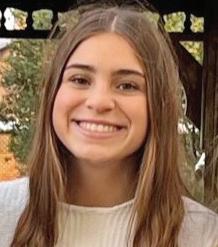
Angelina was aware of her elderly community’s problem with food insecurity and watched firsthand as her grandmother and her neighbors struggled to maintain a healthy diet on ingredients provided by the government and their local food bank. Therefore, Angelina developed a plan to help local seniors grow their own fresh produce indoors by creating and distributing indoor gardening kits. Each kit contained the seeds and materials required to grow tomatoes and basil and was distributed alongside informational flyers at a local senior center. Angelina plans to lead this initiative for another year before allowing members of her high school’s National Honor Society and/or Key Club to sustain it beyond her involvement.
“Navigating obstacles on my own required me to think quickly and alter my plans as needed. These leadership abilities not only helped me complete this assignment, but they also prepared me for future tasks.”
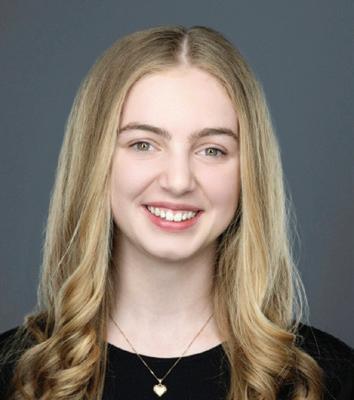
Elizabeth Lowney
Elizabeth loves STEM but felt that she wasn’t able to fully pursue her goals in the STEM field until she reached high school. Elizabeth recognized the need for more robust programming directed towards a younger audience, especially young girls. Elizabeth hosted a series of STEM workshops that featured a Q&A session with her high school’s math teacher and other female members of her school’s robotics team. Additionally, Elizabeth’s workshops included several hands-on activities that provided room for exploration into a variety of STEM topics. Elizabeth’s efforts will be sustained beyond her involvement by her high school’s Robotics Team and Girl Scouts in her community, who intend to collaborate in the coming years to host similar events.
“Through Spring into STEM, I was able to break down barriers in my community and allow for more children to get the STEM education that they need to give them a full picture of the opportunities STEM can offer.”


Charlotte Scolaro Westwood
Charlotte was frustrated by the amount of organic waste present in her town’s landfills that could be recycled through more environmentally conscious means. Many of her town’s residents were unaware that composting was something simple they could do while inspiring a positive environmental impact. Charlotte collaborated with her town’s officials to launch an awareness campaign targeting her town’s residents. Charlotte posted information on her town and school websites, submitted multiple articles to her town’s weekly newspaper, and had articles published in her town’s monthly magazine. Additionally, she gave a presentation at a local elementary school and provided flyers that were sent home with the students. Charlotte’s efforts will be sustained beyond her involvement by a teacher who has committed to including Charlotte’s information in her future curriculum and by the Sustainability Club at Charlotte’s school.
“Through my Gold Award project, I have learned that I am a really good teacher once I fully understand the topic. I really enjoyed working with the children in the schools when giving them my presentation.”



Katherine witnessed a lack of diversity in her town and wanted to create an opportunity for members of her community to learn about other cultures through dance. Katherine drew inspiration from her own culture and experiences and arranged a multicultural dance class at her local YMCA. Katherine ensured the events were approachable and authentic by playing traditional music while verbal instructions for the dance were given in English. Katherine and her additional instructors taught Bollywood and Odissi dances, Bachata, Cumbia, Salsa, Merengue, Nortea, and Bharatanatyam. Katherine’s work will be sustained by her high school’s Spanish teacher and a staff member of the YMCA at which the class was held.
“When participants were anxious, I quelled their fears, and when someone was being ignorant and judgmental, I opened their mind to their behavior and what they could do to change it.”


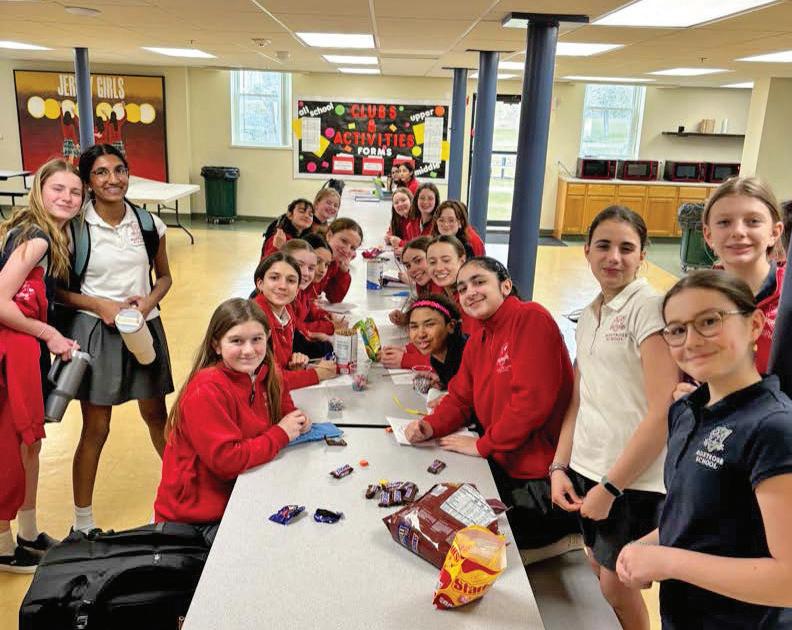





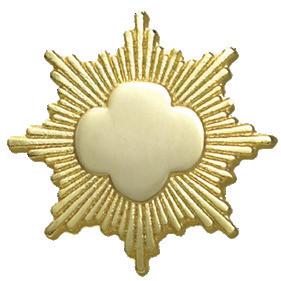
Golden Eagle of Merit 1916 - 1919
Golden Eaglet 1919 - 1938
First Class 1938 - 1940
Curved Bar 1940 - 1963
First Class 1963 - 1980
Gold Award 1980 - present
Lifetime membership is granted to any person who is at least 18 years old or is a high school graduate or equivalent who (1) accepts the principles and beliefs of the Girl Scout Movement and (2) has paid lifetime membership dues.
Dues are a one-time fee of $400, but we offer a reduced cost lifetime membership of $200 to any Girl Scout alums between the ages of 18 and 29. And now when you sign up as a lifetime member, $25 of your dues automatically fund a year of Girl Scouting for a girl in an underserved community in your area.
Girl Scouting builds girls of courage, confidence, and character, who make the world a better place.
On my honor, I will try: To serve God* and my country, To help people at all times, And to live by the Girl Scout Law.
I will do my best to be honest and fair, friendly and helpful, considerate and caring, courageous and strong, and responsible for what I say and do, and to respect myself and others, respect authority, use resources wisely, make the world a better place, and be a sister to every Girl Scout.
*Members may substitute for the word God in accordance with their own spiritual beliefs.
265 Beaver Street
Waltham, MA 02452
gsema.org